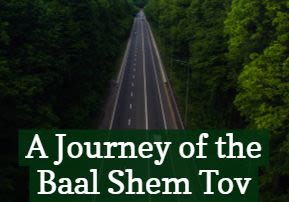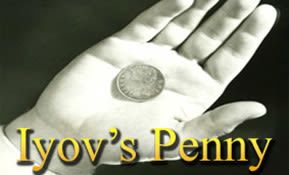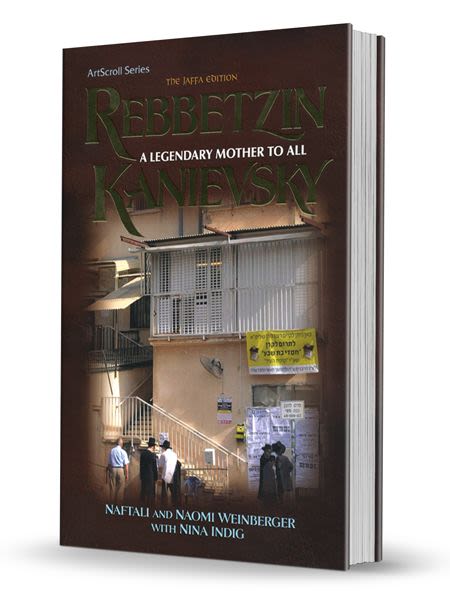
Masei: A Journey of the Baal Shem Tov
“Rabbi, do not be too upset. I had a vision that several of your adversaries will be killed, and the entire city of Shargorod will be set ablaze.”

Parshat Masei
That night, he went to Shul and prayed before the ark. The congregants at the shul were electrified when they saw his prayers rise above him like flames.
"They journeyed …… and camped" (Bamidbar 33:6).
The Baal Shem Tov said that the forty-two journeys of the Israelites in the desert are a paradigm of all journeys.
* * *
A JOURNEY OF THE BAAL SHEM TOV
Once, while the Baal Shem Tov was traveling, he received a Heavenly message that he would be punished in one of two ways. Either he'd be attacked by a band of thieves or he'd suffer from a very high fever. The Baal Shem Tov was carrying a large sum of money that he needed for debts at home, so he chose the high fever.
That very afternoon, which happened to be erev Shabbat, he arrived at the Holy community of Shargorod. He was already so weak from the fever that he could barely walk. That night, he went to Shul and prayed before the ark. The congregants at the shul were electrified when they saw his prayers rise above him like flames.
After the prayers, he was even weaker and had to be almost carried back to the inn where he was staying for Shabbat. After the traditional custom of making Kiddush (sanctification of the Shabbat over a cup of wine), washing his hands, and eating Challah (Shabbat bread), the Shabbat meal was served. The Baal Shem Tov requested that he be brought a very fine wine. After drinking one glass of the wine, he immediately recovered. Then, in a joking voice the Baal Shem Tov said, "That wine was so delicious, it would be worth getting sick again for another glass of that wine."
And so it was.
* * *
The Banished Rabbi
“You shall designate cities which shall serve you as cities of refuge to which a murderer, who killed a person accidentally, can flee.” (Bamidbar 35:11)
God commanded Moshe (Moses) to form six cities (cities of refuge) where an inadvertent murderer could escape. The purpose, of course, was to create a haven to avert more unnecessary death if the family of the victim would avenge their lost one. Upon reaching a city of refuge, the inadvertent murderer would be judged by a Beit Din (court of Jewish law). In the event that he was found to have killed accidentally, he was permitted to remain within the city. However, should he be found guilty of premeditated murder, capital punishment awaited him.
This procedure gives insight into Torah policy. A man is judged based on his motivation, as opposed to his actions. In other words, if a person does a mitzvah (Biblical commandment) accidentally, he does not receive credit for this mitzvah.
There were very specific guidelines surrounding these cities of refuge, such as the condition of the roads leading to the cities. The roads had to be extremely wide and free of potential obstacles. God did not want to risk the possibility of the murderer missing the opportunity to flee.
Amazingly, the accused person is obligated to continue learning Torah, and his Rebbe is commanded to follow the man into the city of refuge. If his Rebbe is the dean of a yeshiva (school of Torah study), then the entire yeshiva moves along with the Rebbe into the city. The accused man must remain in the city of refuge until the death of the Kohen Gadol (high priest that serves in the Temple).
There are several explanations for this policy. One is that following the death of the Kohen Gadol, the resentment of the deceased’s family will surely subside. They will accept that everyone dies, even one of the greatest men of the generation. Another possibility is that since the Kohen Gadol brings Godliness to the Jewish people, and thereby lengthens their lives, it would be inappropriate to have a killer anywhere near this man (the Kohen Gadol lived in Jerusalem and the killer was restricted to the city of refuge).
A third possibility is that this death serves as a penance for the Jewish people and the sin of murder is thus dismissed. However, the Torah is clear that should the man leave the city of refuge, a family member of the one he inadvertently killed is permitted to take his life.
Once, the Mezritcher Maggid, one of the most celebrated preachers of his time and an ardent follower of the Baal Shem Tov, was a visitor in the city of Shargorod for Shabbat. He approached the rabbi (Rabbi Yaakov Yosef HaKohen) of that city and made a request. “Rabbi, I would like to stay at your house for Shabbat and make a private Minyan (quorum of ten men for prayer) for the Shabbat prayers”
The rabbi gave the Maggid permission to stay, but did not participate in the minyan. At one of the Shabbat meals at the rabbi’s table, the Maggid gave a discourse that completely described Rabbi Yaakov Yosef. The rabbi was flabbergasted, since the Maggid gave details that he only could have known supernaturally. “He must be a prophet… otherwise how could he know me so well?” he thought.
The rabbi immediately approached the leaders of the community and excitedly told them of the Maggid and invited them to join him and the Maggid at Seudah Shelishit (the third Shabbat meal}. However, the leaders were not chassidic and in fact were vehemently opposed to the fledgling Chassidic movement.
In fact, the community leaders were surprised that Rabbi Yaakov Yosef was so enamored with the Maggid since they knew he was not one of Hassidim and they certainly did not wish to develop a relationship with the Maggid. Later, the rabbi defended the Maggid to such a degree that he was banished from Shargorod on a Friday right before the Shabbat. The rabbi had to leave in haste in order not to be physically harmed by the community leaders and their followers.
Rabbi Yaakov Yosef took refuge and celebrated the Sabbath in a nearby village where the inhabitants were more supportive to the Baal Shem Tov and his teachings.
The following Shabbat, the Baal Shem Tov journeyed to that village where Rabbi Yaakov Yosef had taken refuge to console him. The Maggid was also in attendance. In an effort to comfort the expelled rabbi, the Maggid described a prophecy.
“Rabbi, do not be too upset. I had a vision that several of your adversaries will be killed, and the entire city of Shargorod will be set ablaze.”
This prediction greatly upset the Baal Shem Tov, and he strongly reprimanded the Maggid.
The rabbi did not lose heart and eventually moved to the city of Raskow, where he became the town rabbi. He later became known as the famous Toldot Yaakov Yosef, one of the closest followers of the Baal Shem Tov, and lived a pious life full of Torah and mitzvot.
Sometime later (approx. 1768-1772), the Maggid’s prediction did happen as he had said.
And so it was.
***
Tzvi Meir Cohn attended Yeshiva Hadar Hatorah in Crown Heights, Brooklyn after completing his university studies in Engineering and Law. While studying at the Yeshiva, he discovered a deep connection to the stories and teachings of the Baal Shem Tov. His many books about the Baal Shem Tov can be found in the Breslev Store. He can be contacted at howard@cohnpatents.com.










Tell us what you think!
Thank you for your comment!
It will be published after approval by the Editor.